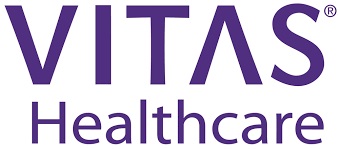 We live in an exciting era where healthcare is undergoing a continuous digital transformation. As a faculty member at FIU’s Department of Information Systems and Business Analytics, and a Research Associate at the VA HSR&D/RR&D Center of Innovation on Disability and Rehabilitation Research, my research involves the use of innovative analytics methods to augment provider effectiveness and improve patient experience.
We live in an exciting era where healthcare is undergoing a continuous digital transformation. As a faculty member at FIU’s Department of Information Systems and Business Analytics, and a Research Associate at the VA HSR&D/RR&D Center of Innovation on Disability and Rehabilitation Research, my research involves the use of innovative analytics methods to augment provider effectiveness and improve patient experience.
Using breast cancer clinical pathways, I am currently working with a team of investigators to develop a blockchain-based solution that would enable patients to share their validated comprehensive treatment records with peers. The solution is intended to increase patient satisfaction and adherence with preventive and treatment regimens. Using data from a primary care clinic, I have also developed an on-demand scheduling system in non-urgent settings using systems’ log data. Once deployed, this system is projected to significantly reduce patient wait times. More importantly, the on-demand care system can potentially help family care practices remain competitive in a market offering real-time care at large retail stores such as Walmart and CVS.
My research initiatives also aim at increasing provider productivity and reducing healthcare costs. These include the development of a real-time clinical recommender system that provides recommendations for medications along with associated cost information. This system will allow healthcare providers, currently ill-informed about diagnostic and treatment prices, to significantly reduce healthcare costs by prescribing similar-outcome, lower cost treatments. Another solution currently under development uses speech analytics to extract relevant pain care assessment and treatment data from patient-provider conversations to populate provider care notes. For patients treated for pain, less time spent on documentation would enable providers to take a more integrative pain care approach educating patients about the risks associated with long-term Opioid therapy and providing personalized treatment alternatives.
Through collaboration with the Office of Veterans Affairs, I have been involved in several HSR&D and NIH studies that aim at leveraging healthcare data to improve Veterans’ care quality and experience. One such study looked at the assessment of pain care quality for Veterans with musculoskeletal pain through the development of Natural Language Processing and Machine Learning tools to extract pain management data from structured fields (coded) and unstructured fields (clinician text notes) in the EHR. Among other aims, the study assessed the effectiveness of alternative pain management techniques such as meditation and acupuncture at reducing pain among this Veteran population. In a different study, data from the EHR was used to develop risk models to better identify risk for pressure ulcers (PrUs) among Veterans with spinal cord impairment (SCI), and target prevention strategies; thereby reducing the burden of this condition on Veterans.
While researchers are currently applying analytics tools to improve the different facets of healthcare, providers and administrators are better equipped to identify such issues. Through Informatics and Analytics programs such as the one offered by FIU Business, clinicians and administrators can acquire skills that will help them leverage health data to optimize care quality, value, and accountability.


























